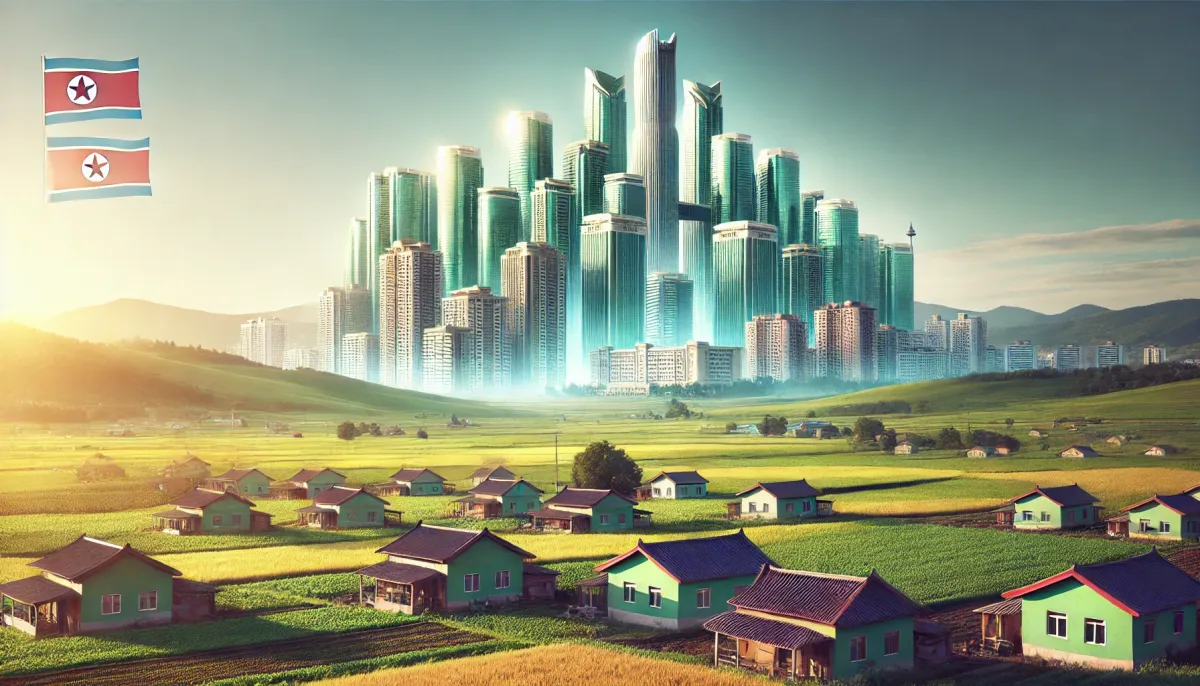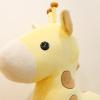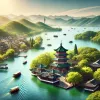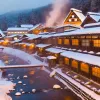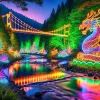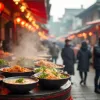Hi everyone, Mark here! As a seasoned backpacker with a passion for exploring Asia, I've had the incredible opportunity to visit some truly fascinating places. My recent trip to North Korea, however, was unlike anything I've ever experienced. This wasn't your typical tourist jaunt; it was a journey into a world shrouded in mystery and controlled by a regime unlike any other. I'm here to share my insights, dispelling some myths and hopefully providing a clearer picture of this enigmatic nation for those considering a visit (though I must caution you to thoroughly research and understand the implications before going).
Pyongyang: A City of Controlled Charm
Pyongyang, the capital, is a carefully curated showcase. While impressive in its architecture and grandiose monuments honoring the Kim family dynasty, I found its atmosphere strangely stilted. Conversations with locals were limited; the fear of saying the wrong thing, potentially leading to imprisonment in a labor camp, was palpable. The city's beauty, meticulously maintained, feels a little like a stage set, designed to impress foreign visitors, hiding the realities outside its carefully constructed walls.
Most people access information through state-controlled media. While there are nascent signs of change under Kim Jong-un’s leadership, dreams remain carefully managed, often suppressed due to the harsh realities of everyday life. The expectation of change following Kim Jong-un's ascension in 2011 hasn't fully materialized; freedoms remain severely restricted.
| Aspect of Life in Pyongyang | Observation |
|---|---|
| Interaction with Foreigners | Very limited; potential repercussions for indiscreet conversations. |
| Media Access | Primarily state-controlled; limited exposure to outside information. |
| Freedoms | Severely restricted; movements and expressions are monitored. |
| Kim Family Presence | Overwhelming; portraits and monuments are ubiquitous. |
Beyond Pyongyang: A Glimpse into Rural Life
Venturing beyond Pyongyang revealed a stark contrast. The pristine cityscape gave way to a simpler, more rustic landscape, reflecting a life untouched by the modernization seen in the capital. Rural areas lacked basic amenities like streetlights; farming methods remained largely manual, a testament to the limited access to resources. The people I encountered lived a life governed by a six-day work week—a common claim, though often people worked seven days a week. Jobs were largely assigned, leaving little room for individual choice or career progression.
The lack of choice extends to personal life. The pressure to marry young is strong; unmarried women in their late twenties face social stigma. Social interaction outside immediate family and colleagues is discouraged. Facebook, Line, and other forms of social media are non-existent.
| Rural Life Aspects | Observation |
|---|---|
| Infrastructure | Limited; lack of electricity and running water in many areas. |
| Employment | Assigned; minimal job mobility or choice. |
| Social Interaction | Restricted; outside of immediate family and work colleagues, social interaction is discouraged. |
| Marriage Expectations | Strong pressure to marry young; social stigma for women who remain unmarried in their late 20s. |
The Legacy of Goguryeo and North Korea's Shifting Landscape
My journey also delved into North Korea's history, particularly the Goguryeo Kingdom, a powerful dynasty that once ruled a vast territory encompassing parts of present-day China, North Korea, and South Korea. The legacy of Goguryeo is deeply woven into North Korean identity, shaping its historical narrative. Learning about Goguryeo gave me a deeper understanding of the North Korean sense of national pride and heritage, even amidst the stark realities of the present.
More recently, the international community has been watching North Korea's evolving policies. Kim Jong-un's surprising announcements of halting nuclear tests and missile launches, his meetings with South Korean and US presidents—all point towards potential shifts in the country’s trajectory. While it is difficult to assess the true extent of change from an outsider's perspective, the gradual relaxation of some restrictions and the softening of anti-Western rhetoric in state media suggest a move toward a more measured approach.
A Land of Contrasts: My Concluding Thoughts
My experience in North Korea was a powerful reminder of the complexities of the world. Pyongyang's controlled environment contrasts sharply with the simple, challenging lives in rural areas. The historical legacy of Goguryeo intertwines with the country's current political evolution. While the future remains uncertain, the changes, however subtle, are palpable. North Korea is far from a monolithic entity; it's a land of stark contrasts, a society struggling to balance its past with its future.
